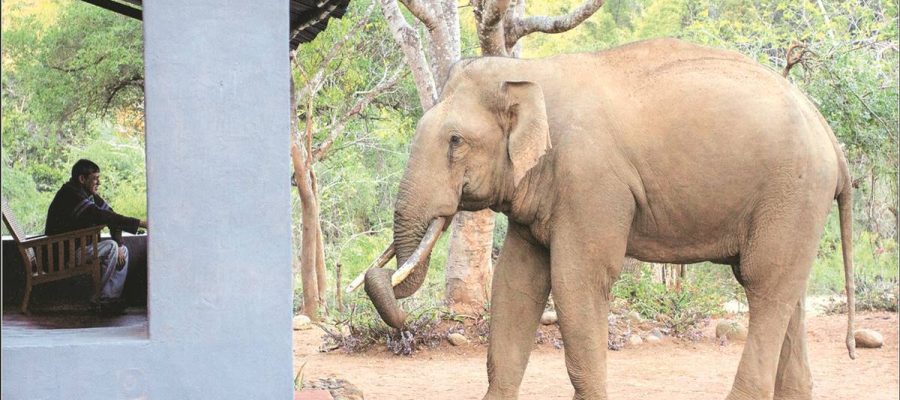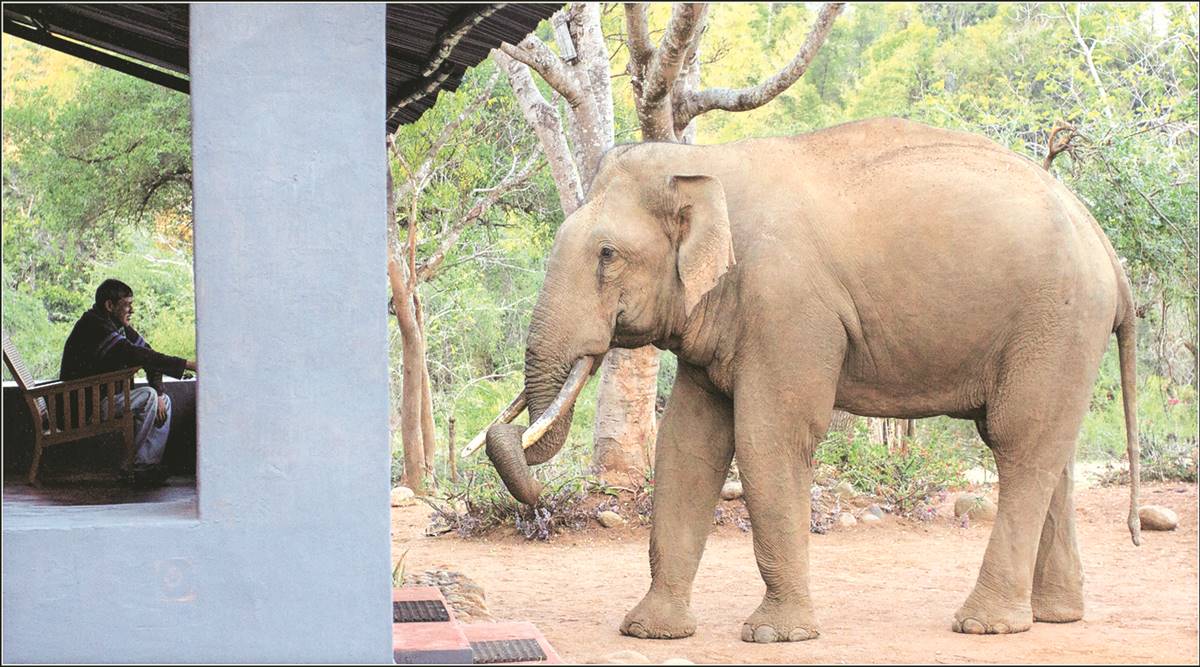But the passion of those who support this wild elephant from the Nilgiris is no less than those who followed the Brazilian midfield legend, whom it is named after, till his retirement a few years ago.
THIS RIVALDO is neither Brazilian, nor a football star.
But the passion of those who support this wild elephant from the Nilgiris is no less than those who followed the Brazilian midfield legend, whom it is named after, till his retirement a few years ago.
They include a legion of conservationists, and even forest officials, who are joining hands to block a move to return Rivaldo back to captivity. The Madras High Court has already rejected such a move but the legal tussle is still on and will be heard next on December 7.
Known for his “unusual camaraderie” with humans, 35-year-old Rivaldo was led to a kraal (a government-run enclosure for elephants) near Vazhaithottam near Ooty in May for medical treatment on a High Court order following difficulty in eating due to an old injury to its trunk. Visuals of Rivaldo walking into the kraal on his own without force or tranquilisers had drawn much comment at the time.
After treatment in captivity for nearly 90 days, Rivaldo was released in August. Forest officials said the tusker, fitted with a radio collar, travels about 30-40 km every day.
On September 23, rejecting a petition filed by S Muralidharan of the Indian Centre for Animal Rights and Education, seeking the capture of Rivaldo citing health reasons, the High Court bench of Chief Justice Sanjib Banerjee and Justice P D Audikesavalu said, “There is a rule of the survival of the fittest and though endangered animals are sometimes taken into captivity to protect or feed them, animals are best left in the wild.”
In his petition, Muralidharan said “pushing Rivaldo back into the wild may not be the right thing to do, as he could be harmed by farmers who will be angered when their crops are damaged”, adding that there were several incidents of him trampling compound walls and damaging crops.
Arguing against his re-capture, a senior Forest official said Rivaldo used to “go to residential areas and people used to feed him”. “Ever since he started entering a gated community in the area, which is part of a disputed territory linked to an elephant corridor, there has been a strong campaign for his captivity… the previous government agreed to take him in custody for treatment. It was wrong,” the official said.
Vijay Krishnaraj, a conservationist with the Nilgiris-based United Conservation Movement (UCM) Movement and part of the team monitoring Rivaldo in the wild, said the elephant is “completely healthy and safe”.
“I have known him since 2012. After he was released in August, he returned to some of the villages. Right now, he is inside the Mudumalai Tiger Reserve. The area where he is spending time right now has some six other tuskers. About 400 elephants use this as a corridor annually. Rivaldo is totally safe,” he said.
According to Krishnaraj, Rivaldo’s injuries have healed. “Capturing and keeping him in captivity for three months was unnecessary. If Rivaldo had difficulty in eating, he wouldn’t have survived so many days in the wild,” said Krishnaraj.
If Krishnaraj has known Rivaldo since 2012, there were many who knew him “personally”. Like Priya Davidar, the sister of Mark Davidar, a conservationist in the Mudumalai forest region who died in 2013. “He was always friendly…There is a common belief that elephants cannot be rehabilitated if they taste human food, and this led to the latest petition seeking his captivity,” said Davidar, a former Ecology teacher at Pondicherry Central University.
Incidentally, the late Mark Davidar’s Cheetal Walk, a forest house, used to attract many young male elephants and all of them were named after his favourite Brazilian players: Roberto Carlos, Ronaldo, Kaka and Cafu.
They lost track of them over the years, said Krishnaraj. “Only Rivaldo is left now.”
Source: Read Full Article


